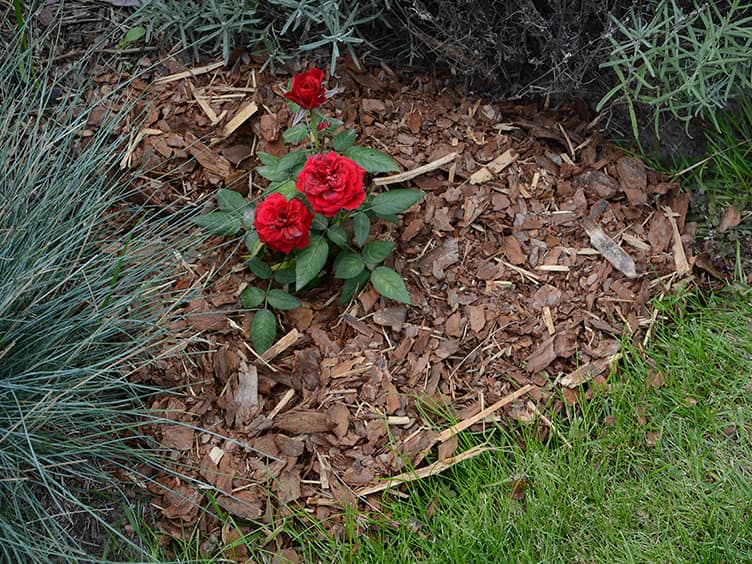Chilli
It seems that most people now have at least 1 or 2 chilli plants at home – it’s become incredibly trendy. Growing...

The transition from late spring to early summer is often blurred. It’s not unusual for some parts of the country to have already experienced extreme heat well, before the official start of the new season. We know summer is really here when the hydrangeas are covered in big, blousy heads of blooms! This month, it’s all about making sure the garden is looking good.
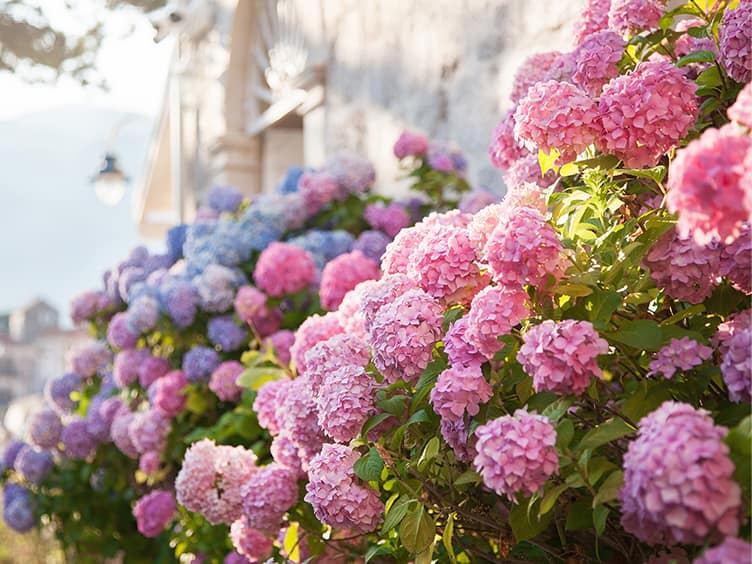
The hard yards put in over spring should now be paying dividends with the lawn lush and green, veggie patch producing tasty fresh crops, fruit trees showing evidence of luscious fruits ahead and the flower garden bursting with colour. At least, that’s the dream! Sometimes circumstances conspire against us, and there’s a last-minute rush to get chores done in time for the festive season and following holidays.
It seems that most people now have at least 1 or 2 chilli plants at home – it’s become incredibly trendy. Growing...
Delicious in salads and sandwiches, the crisp, sweet crunch of a cucumber is one of the joys of summer. Growing...
Spring onions (also known as green shallots and green bunching or salad onions) are a delicious addition to a whole...
The basis of so many delicious dishes, onions (Allium cepa) are an essential ingredient in every cook’s store cupboard...
Growing garlic ( Allium sativum) at home is now very popular. It's an easy vegetable to grow - just plant a garlic clove...
Zucchini are now a common, summer staple in the vegetable garden. They are relatively easy to grow and they can be eaten...
Runner beans, or more correctly scarlet runner beans, (Phaseolus coccineus) are among the easiest and most rewarding...
Bags of salad leaves are quite expensive to buy and have a fairly short lifespan in the fridge. Grow your own salad...
Sweet Corn, or maize, won't really grow as high as an elephant's eye, but it will be sweet, tender and delicious -...
Rhubarbs edible stalks grow from a central crown and this popular vegetable is most commonly eaten as a sweet! Once...
You might not like the cold weather, but Brussels sprouts do! Brussels sprouts grow best in cool climates with cold...
Kale is an easy to grow leafy vegetable that has become popular thanks to its superfood status because it’s rich in...
Silverbeet is also commonly referred to as Swiss chard, chard or rainbow chard. The rainbow variety has brightly...
Ginger is a tasty and easy spice to grow in your own garden. Tropical and subtropical gardeners can grow ginger year...
Beetroot is the ultimate vegetable to grow for root-to-tip eating! Its young tender leaves can be eaten raw in salads or...
Celery can be a fussy vegetable to grow, it doesn’t like it too hot or too cold! But once you’ve got it growing happily...
Watercress is a peppery, nutrient-rich leafy green that’s delicious on sandwiches and in salads. It’s easy to grow in...
Eggplants are a heat-loving, productive and home garden-friendly crop to grow. They love a full sun spot and will...
Capsicums add crunch, colour and nutrients to many dishes including salads, casseroles, stir fries and roasts. Capsicums...
Sweet potatoes rambling vines grow tubers beneath the ground. These vigorous and productive vines can be grown in a...
Beans are a bountiful plant to have in your vegetable garden, they are easy to grow and heavy croppers. You can find...
Radishes are one of the easiest and speediest vegetable crops to grow! Perfect for the time poor or beginner gardener...
Globe artichoke (Cynara scolymus) are thistle like plants that produce edible flowers - harvested and eaten in their bud...
Squash or patty pan squash as they are often called - because of their UFO like shape - are an easy to grow summer...
Parsnips are a nutty and sweet root vegetable that can take 5-6 months to reach maturity! But the flavour of homegrown...
Lettuce is an easy to grow, staple leafy green that can be easily grown year round. You can grow lettuce quickly from...
Okra, also known as Lady’s Fingers or Gumbo, produces long pod-shaped fruit that can be used in stews, curries and stir...
Taro is a staple crop in many pacific countries that produces an edible white tuber beneath the ground. The starchy taro...
Carrots are an easy to grow, staple vegetable that’s worth including in your garden. They’ll happily grow in a full sun...
Yam (Dioscorea sp.) is an ancient food crop grown in tropical and subtropical climates as an alternative to potatoes...
Tiny and tasty, cherry tomatoes are a vegie patch superstar. Surprisingly east to grow, these little legends come in a...
Who doesn’t love strawberries? If you’re a strawberry fan, there are many varieties easy to grow at home, allowing you...
What could be better than a bowl of sweet, fresh-picked raspberries in summer? These delicious fruits are easy to grow...
Homegrown cherries are sweet, juicy and delicious. Many varieties will be dripping with ready to pick cherries around...
Chokos are an old-fashioned crop that’s making a comeback! Once upon a time, these vigorous vines covered pergolas...
Blackberries sometimes get a bad wrap thanks to the wild, thorny, weedy ones! But growing blackberries in your garden is...
Growing grapes from your own grapevine really are the perfect summer snack! Fruiting grapevines are fast-growing...
Fig trees originate from the Mediterranean where the summers are hot and dry, and winters cool - so they happily grow in...
Mangoes are the classic summer fruit, loved for their sweet and juicy flesh. Mango trees thrive in tropical and...
Passionfruits are a popular and productive vine that will grow in most climates around Australia. They particularly...
Pineapples are an easy care tropical fruit, that will also grow in other frost-free climates around Australia too...
Lychee fruit grow on medium to large evergreen trees that love growing in subtropical and tropical climates. They love a...
Paw Paw or Papaya (Carica papaya) originate from tropical and subtropical climates, so they thrive in warm, frost free...
Mulberry trees are a fast and easy to fruiting plant for every home garden! You’ll rarely find mulberries at the...
Kiwifruit grow on large, vigorous vines that need a lot of space to grow. To produce kiwifruit you’ll need to plant both...
Gooseberries (Ribes uva-crispa) are native to parts of Europe, but they’ll happily grow in the cooler parts of southern...
Plum trees are productive fruit trees, ideally suited to growing in the average backyard or in a large pot. There are...
Orchids are a great addition to any home, with their exotic, delicate and diverse flowers and their beautiful shapes and...
If you want to grow something spectacular, plant sunflowers. They come in a whole range of sizes from dwarf to giant and...
Alliums belong to the same family as onions, garlic and leeks, as you can tell from the aroma when you crush the foliage...
Roses are among our favourite garden plants – and deservedly so. They are versatile, produce vibrant colour through...
Lavender is a beautiful, fragrant small shrub perfect for cottage gardens, perennial borders and pollinator patches...
Dahlias produce colourful blooms throughout summer and well into autumn in Australia. Their flowers can be big and...
Gerberas produce bright, colourful flowers on long stems during the warmer months of the year. Gerbera daisies grow in...
Jasmine (Jasmine polyanthum) is a vigorous vine with sweetly scented white and pink blushed blooms throughout spring and...
Lilies or lilium are summer flowering bulbs with showy blooms that are often heavily fragrant. Lilies will grow in most...
Marigold flowers will bring bright pops of colour to your warm season garden, veggie bed or pots. There are 3 main types...
Gardenias are warm climate flowering shrubs or small trees, loved for their beautifully perfumed blooms. Gardenia plants...
Poppies will bring a flush of colour into your spring garden with their frilly flowers. There are many different types...
Proteas are sun-loving beauties originally from South Africa, that grow particularly well in our poor Australian soils...
Snapdragons are bright and cheerful flowering plants that grow in most climates. If you live in a region with heavy...
Hydrangeas ( Hydrangea macrophylla) are the perfect flowering shrub for part shade AND their big blousy flower heads...
Geraniums (Pelargonium spp.) are hardy, sun-loving plants with brightly coloured flowers throughout spring and summer...
Carnations are grown for their beautifully fringed, fragrant blooms that make a long-lasting cut flower to enjoy in a...
Poinsettia is a Christmas favourite - their red and green colours are commonly used to bring festive cheer indoors over...
Begonias come in a range of sizes and forms, and they’re loved by gardeners as indoor or outdoor plants for their...
African violets are typically grown as indoor plants, but they will also tolerate growing outdoors in a protected warm...
Forget Me Nots produce dainty pale blue, pale pink or mauve flowers in spring and summer. These pretty low growing...
Everlasting Daisies (Xerochrysum bracteatum) are a colourful Australian native daisy often called Strawflowers or Paper...
Lilac shrubs or trees (Syringa vulgaris) are loved for their heavenly fragrant flowers in spring and summer. In autumn...
Ranunculus (Ranunculus asiaticus) make the perfect spring and early summer cut flower. They grow from dormant corms...
Zinnias are colourful and cheerful summer flowering annual plants that are a must for all gardens during the warmer...
Aster (Callistephus chinensis) or Chinese Aster are fast-growing, flowering annuals that thrive in the warmth of spring...
Iris flowers appear in spring and summer in Australia on long, slender stems that can be around 60-100cm tall. Irises...
Nasturtiums are an easy to grow, flowering companion plant that’s also edible. Nasturtium flowers have a peppery flavour...
Petunias are sun loving, summer flowering beauties that provide masses of colour over the warmer months. Petunias love...
Cheerful, bright and compact, African violets are the perfect indoor pot plant. They have eye-catching purple, red, pink...
Snake Plants are the easiest houseplant of all to grow. This undemanding plant will grow in the most challenging of...
Weeping Fig (Ficus benjamina) are elegant houseplants loved for their glossy leaves that hang gracefully from arching...
With its iconic round leaves and vibrant green colour, the Chinese money plant (Pilea peperomioides) has become a...
A popular stalwart in Australian gardens for good reason, buffalo grass makes for an incredibly resilient lawn. It is...
Kikuya grass, or Pennisetum Clandestinum, is a vigorous plant often used in Australian lawns and common in public...
Bromeliads ( Bromeliaceae) are a diverse group of plants with a very tropical vibe. With over 3000 different species in...
Bougainvilleas put on a showy display of vibrant colour throughout summer. These vigorous vines are drought tolerant and...
Magnolia's magnificent blooms arrive at the end of winter, announcing that spring isn’t far away. On deciduous magnolias...
Bird of Paradise plants are tropical beauties with big leaves and flamboyant, colourful flowers that resemble birds...
Dieffenbachia (Dieffenbachia spp.), also known as Dumb Cane or Leopard Lily, are fast-growing tropical plants popular as...
Boston Ferns (Nephrolepis exaltata) are elegant plants with long, slender leaves that cascade over the sides of their...
Kentia Palms (Howea forsteriana) are tall, elegant palms with arching fronds on long stems that will happily grow as a...
Lilly Pilly plants range from small shrubs to large trees - you can grow them in the ground or pots and you’ll find a...
Bottlebrush gets their common name because their fluffy, blooms are shaped like old-fashioned bottle brushes...
Waratah (Telopea species) are Australian native plants loved for their large flowers that come in a range of colours...
Lemon trees are a classic backyard staple! These productive trees are long-lived and will grow in a large pot or in your...
Christmas Bush (Ceratopetlum gummiferum) or NSW Christmas Bush as it’s sometimes called is an Australian native plant...
English Ivy (Hedera helix) is a fast growing, creeping vine that is a serious environmental weed in many parts of...
Microgreens are the young and immature seedlings of plants with edible leaves that you can harvest and use for garnish...
Many of the veggies planted or sown in through spring may start cropping during the month, some earlier than others. Pick what you need daily and rinse in clean water to remove dirt and dust before eating. Beans, lettuce, tomatoes, beetroot, spring onions, snap peas, silverbeet and sweet corn all taste better fresh from the garden.
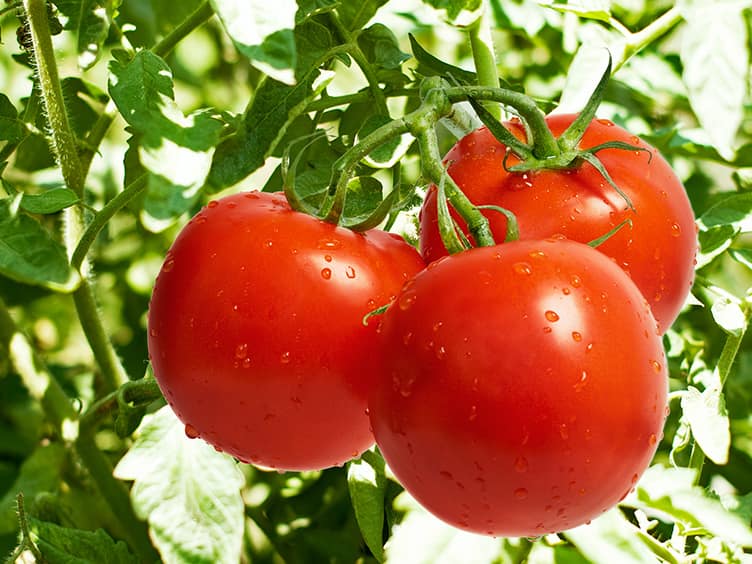
Seedlings of summer favourites and Asian greens may still be planted now into well prepared and fertilised soil. Add a long-term or controlled release fertiliser and mix through the soil then moisten well a few days before planting.
Advanced tomato seedlings can still go in provided they are given some protection from scorching sun until they are established. Staggering the plantings over many weeks will provide continuous cropping throughout summer. Check the below interactive chart to get some ideas on what to grow:
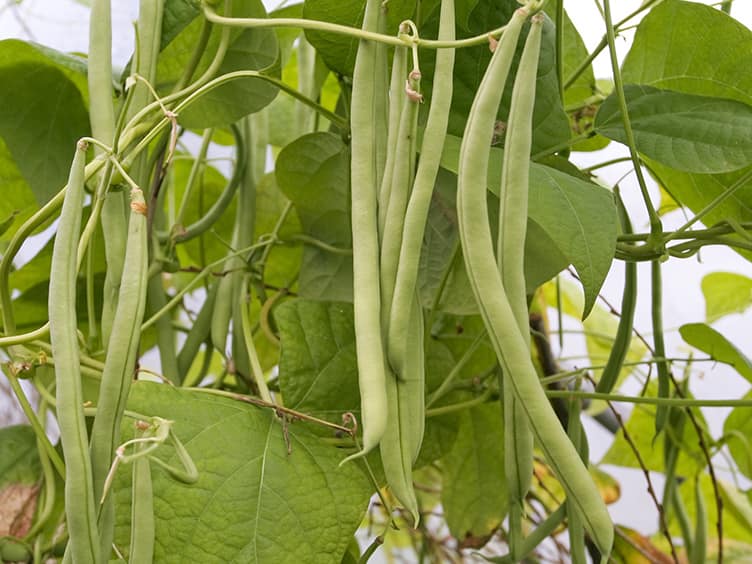
The first of the stone fruits – cherries – ripen early in December. The first box into the wholesale markets is usually auctioned off for a handsome sum, donated to charity. Later in the month, apricots will be ripe, followed by early season plums.
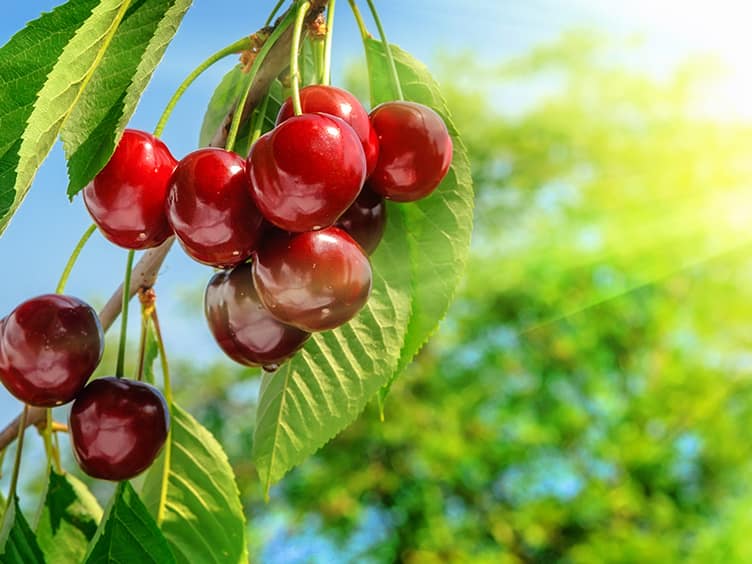
Strawberries and early cropping varieties of raspberries and blackberries all fruit in December, and the first of the passionfruit may turn purple and drop to the ground. Tropical fruits and citrus are still cropping in warmer areas, and honeydew melon, watermelon and cantaloupe are still in season in hot, dry regions.
Planting of evergreen and potted deciduous fruit trees is not recommended over summer. Soil and air temperatures are too high and may damage roots and soft growth, from which the plants may never fully recover.
Continue planting gladiolus corms every two weeks until mid-December. They usually flower in about 60 days.
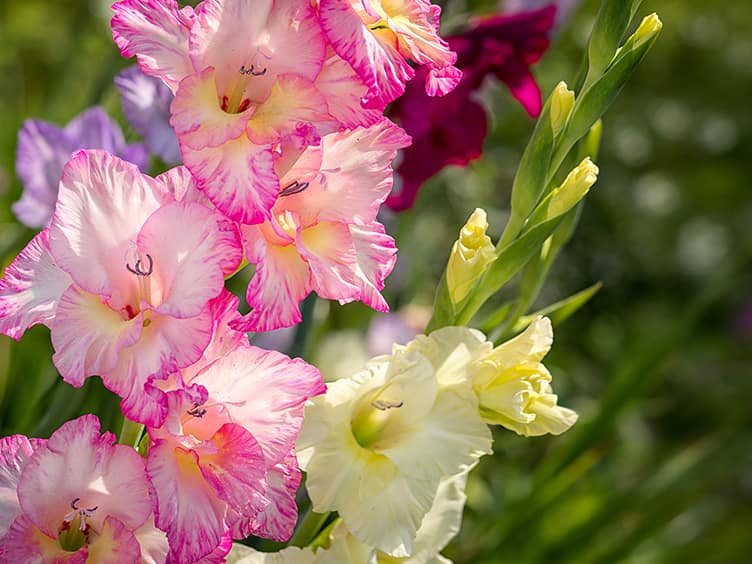
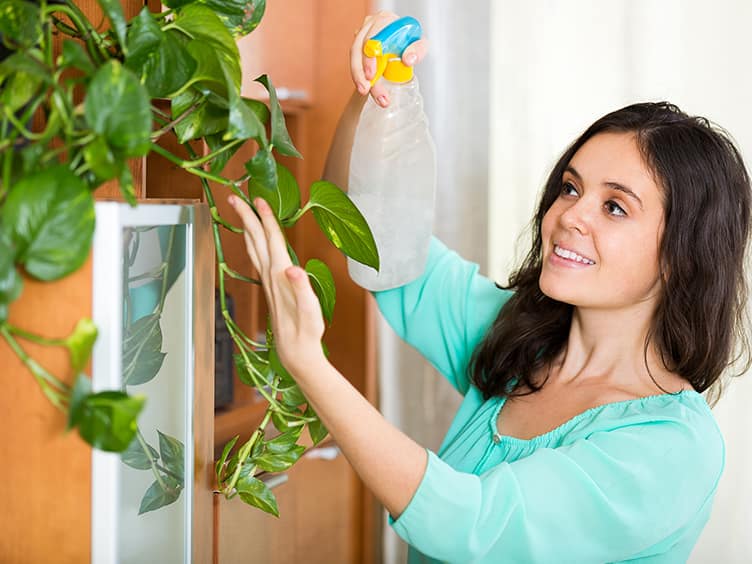
Regular mowing will keep existing lawns looking neat. Raise the cutting height to leave the grass longer to protect the crowns and runners of grasses from the sun. This also helps keep the soil and roots cooler. If it doesn’t rain, water the lawn deeply at least once a week (if there are no restrictions in place) early in the morning before sunrise.

Summer is all about mulching – add a layer about 100mm deep of pea straw, lucerne or sugarcane mulch over garden beds, including the vegetable patch, to keep the soil cool, moist and weed-free.
